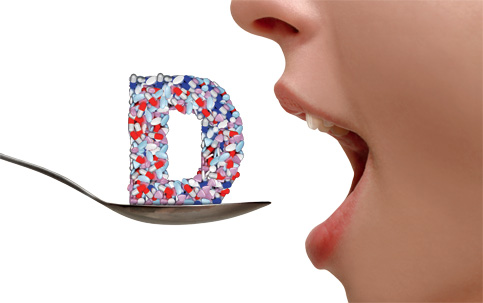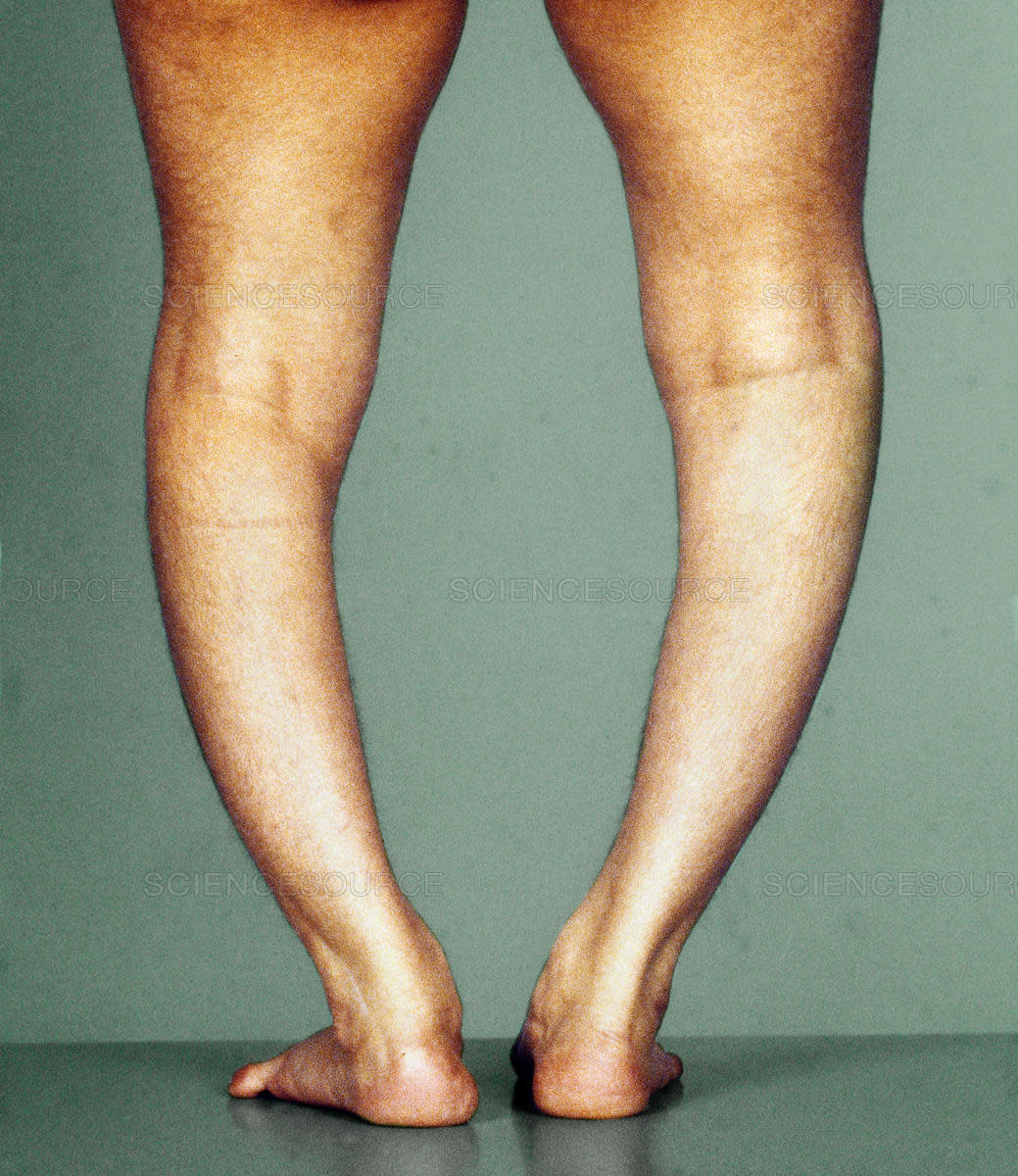Recognize the Symptoms of Vitamin D Deficiency and Learn How to Treat It
Nowadays, Vitamin D deficiency is more common. We all have stressful lives and we don't always have time to provide our body everything it needs.
Although vitamin D can be found in daily food like milk, it is not always consumed in sufficient quantity, resulting in various problems of disability.
The vitamin D promotes the absorption of calcium (after exposure to sunlight) which is essential for a normal development of the bones and teeth. It also acts on the immune system, heart, brain and secretion of insulin (the hormone that allows glucose to input the interior of the cells).
Without vitamin D, the body can not absorb calcium properly and the bones become brittle. However, recent studies indicate that vitamin D deficiency can lead to many other diseases, including cancer, asthma, diabetes, sclerosis, depression, among others.
Thus, we understand the importance of having levels of vitamin D in appropriate values.
Next, we will examine the main symptoms of vitamin D deficiency and what we can do to treat it.


All these symptoms can differ from person to person. Each person is unique and may feel different symptoms in different ways.
How do I know if I have Vitamin D Deficiency?
The best way to discover vitamin D deficiency is to take a blood test that will measure the level of that vitamin in your blood. You can either ask your doctor to administer the test or buy a home test kit and do it yourself.
However, if you feel any of these symptoms, you most likely have deficiency of vitamin D.
Fatigue and generalized weakness - One of the most common symptoms is the constant feeling of fatigue. You feel extremely exhausted no matter how much you rest. You're always feeling tired for no reason.
Muscle Weakness - A vitamin D deficiency causes muscle weakness. Skeletal muscles have a receptor for this vitamin and they need it to perform to its maximum power. The appropriate replacement of vitamin D reduces significantly the likelihood of drops.
Depression - Scientists have discovered that people with the lowest levels of vitamin D were 11 times more prone to be depressed than those who had normal levels.
Diabetes - Some studies have reported a lack of vitamin D to diabetes. Type 1 diabetes develops due to malfunctioning of the immune system. Mounting scientific evidence indicates that vitamin D plays a vital role in the normal functioning of the immune system and vitamin D deficiency can lead to the malfunctioning of the immune system. Consequently, your own immune system starts to attack and kill your own insulin producing cells in the pancreas, reacting as if they are invading viruses that must be destroyed. Once you are unable to produce insulin, you develop Type 1 diabetes.
Sleep Disorders - In our brain we have plenty of vitamin D receptors that control normal the sleep pattern. It is believed that stabilizing vitamin D levels could be a remedy for sleeping problems.

Risk Factors for Vitamin D Deficiency
- Older than 65 years-old
- Breastfed exclusively without vitamin D supplementation
- Dark skin
- Insufficient sunlight exposure
- Medication use that alters vitamin D metabolism (e.g., anticonvulsants, glucocorticoids)
- Obesity (body mass index greater than 30 kg per m2)
- Sedentary lifestyle

Diseases Linked to Low Vitamin D Levels
Almost all tissues of the body have vitamin D receptors, including intestine, brain, heart, skin, genitals, breast, placenta and lymphocytes. It is known that this vitamin acts as a hormone and influences the expression of over 200 genes.
Vitamin D is a superstar nutrient you don’t want to live without! Vitamin D deficiency symptoms, if untreated, can lead to serious health problems such as:
- High Blood Pressure; Heart Problems
- Osteopenia or osteoporosis
- Multiple Sclerosis; Asthma; Fibromyalgia
- Contracting the cold or the flu (weakened immune system)
- Asthma
- Rheumatoid Arthritis; Chronic Fatigue Syndrome
- Major depressive disorder or seasonal affective disorder
- Diabetes; Psoriasis; Lupus; Infertility
- Alzheimer's Disease; Parkinson's Disease
- Crohn's Disease; Tuberculosis
- Chronic Lymphocytic Leukemia
- Certain Types of Cancer (breast, prostate, ovarian and colorectal cancer)
What Causes Vitamin D Deficiency?
- Lack of sun exposure - This is very common in countries with less sun or in winter months. It is also frequent in people who work indoors.
- Reduced consumption of foods rich in vitamin D - Although the sun is the primary source of vitamin D, there are also plenty of food that we can get this nutrient from, such as fish (salmon, tuna, mackerel and cod), oysters, shrimp, beef liver and eggs.
- Age - As age advances, our ability to convert vitamin D to its active form decreases, which can lead to deficiency.
- Obesity - Vitamin D is extracted from the blood by fat cells. The more fat cells you have in your body, the less vitamin D is released into the circulation.


How to Treat Vitamin D Deficiency?
Treat vitamin D deficiency depends on the cause. But in most cases, we can take certain measures to help ourselves obtain this vitamin.
- Food - Vitamin D deficiency can be avoided and treatment can be done by the consumption of natural food that represents a rich source of vitamin D. This include food such as eggs, bovine liver, fish and fish oils (such as cod liver oil), cow's milk, soy milk, etc.
- Exposure to sunlight - This method of treating vitamin D deficiency is also known as ultraviolet (UVB). Direct sunlight is the most natural and the best source of vitamin D. Daily exposure to direct sunlight for about 20 minutes, can be very useful in the treatment and prevention of vitamin D deficiency Vitamin D3 is absorbed by the skin when exposed to sunlight, which is converted into active hormones or metabolites in the kidneys.
- Supplements - A daily multivitamin has about 400 units of vitamin D, but some experts say that you still need to take a straight vitamin D supplement on top of the multivitamin to achieve normal levels.
- Artificial Ultraviolet radiation B - This form of treatment is administered for those who do not have access to direct sunlight. The exposure ultraviolet radiation B, created by artificial light sources functions as a substitute to exposure to direct sunlight and allows the synthesis of vitamin D in the skin.
All the above forms of treatment for vitamin D deficiency should be put into practice only after consulting and being advised by a doctor. It is better not to get into self-treatment, as an overdose of vitamin D can result in serious health risks as well.











